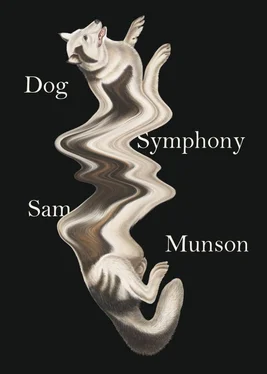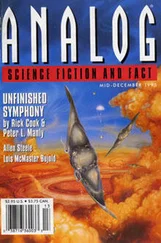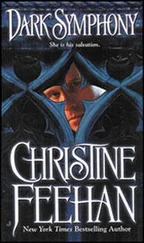I spoke to no one beside the Zygmunds during this excursion. The student armies dissolved as soon as we entered the bar, but the barking and baying continued in erratic bursts. I sat with the Zygmunds, their eyes and white hair blazing in the improvised and fleet light of the bar, candlelight, firelight, light of civilization. The crepuscular, yellow, orange, oblong, virtuoso, unimprovable, unitary, meridional glow. What you can accomplish in the so-called light of civilization defies definition, I thought. They asked me what my plans for the break were, and I told them I was bound for Buenos Aires, for an academic conference. Mr. Zygmund said, without hesitating, that I must stay with their daughter — she lives in Flores, a truly excellent neighborhood! I refused, saying I could not possibly impose. Mrs. Zygmund, flushed with embarrassment on my behalf, said that they had meant as a paying guest. Their daughter owned and operated, they said, a small hotel. A pension, in fact, called the Pensión Vermesser. They assured me that the hotel was excellent, and I raised my glass to them in a silent valediction.
I left soon after, walking to my apartment through the thickening snowfall, which had covered the streets and pavements in a fragile, half-luminous sheet. My boots left small voids, and more snow quickly effaced them. When I got home, my phone was ringing, though it was well after midnight. I heard it from the hallway; somehow it was apparent at once that it had been ringing for hours. The ringing continued as I took off my coat and kicked the snow from my boots; it shrilled as I passed the mirror, which showed me — as always — my dark receded hair, my crude jaw, my nostril flesh beset with blackheads, a greasy, cold-reddened ear. No one answered my greeting. I thought I heard a quiet breath, or a sob, or a choked laugh, amid all the hissing emptiness, the true sound of phenomenal existence. I listened. I cried out another hello. Then I hung up.
OUR ARRIVAL WAS SEVERELY delayed. We sat on the tarmac at Pistarini International Airport for one hour, which turned into another. The captain said, again and again, in his murky voice, that we would soon be at our gate. Each time he was proven wrong. The ventilation system filled the stifling cabin with a white roar. Loud complaints kept erupting ahead of me, behind me, to my right. Fuck this, we paid our money, stop fucking around. Among these complaints was another, one that made no sense. It’s those useless fuckers from the department, whispered the seam-faced old woman across the aisle. The man to her right hushed her. Don’t get so upset, he said, it might be them but there’s no point in causing trouble. Close to midnight, we began to taxi toward what the captain promised was our gate. His voice woke me from a dream of Ana, a dream based on the photograph from Milan (I knew this even as I dreamed the dream). Our Lenin-like colleague ran around on all fours while Ana stood on the rock. I was nowhere to be seen. A storm floated leadenly above Lake Como, and the pink palazzo was consumed and left standing as though by invisible flames.
Before I went to the customs line, before I urinated, I located a payphone and called Ana’s office number. The airport air was cold and sweet, like the melancholy (I assumed) that overtook its namesake during his exile in Tierra del Fuego. I knew there was little chance Ana would be in her office this late, but I had to try. The line bleated. No one answered. I tried again; still nothing. I was disappointed. I had never been to Buenos Aires. In fact it was my first time in the southern hemisphere, and Ana was my sole acquaintance in the southern capital. We hadn’t made any firm plans to meet on the night of my arrival, but I had hoped to see her. My address book was buried at the bottom of my suitcase, and I did not want to paw through my shirts and my papers to reach it. In any case I knew my destination. Before my departure, the Zygmunds had assured me their daughter had an empty room, and had even arranged for her to give me a special rate. The Pensión Vermesser was located, as they had said, in Flores, on José Bonifacio. I surveyed the maps of public transit. I could have gotten there on the Subte, or by taking a long bus ride, but my suitcase was too heavy. I had brought two enormous reference works, Chulkov’s Toward a General Theory and Apukhtin’s monumental work on shackling. (As my suitcase creaked I envied Ana: the Pensées and Dead Souls take up almost no space, being books of pure void.)
Few other travelers filled the concourse as I headed for the customs line. Not even the tired and furious people I had deplaned with could be seen. The only other human beings, in fact, were four men in sky-blue uniforms, strolling along the wide path between the seating areas for the gates. I did not recognize their uniform markings. As a result of my studies, I was well acquainted with police and corrections uniforms from around the world, but their sky-blue liveries seemed completely new, completely alien. Above their stiff collars floated the jovial, slightly sly communal expression you often see on state-owned faces. One man carried a shovel over his shoulder. Grayish crusts of earth clung to the bright blade. Five more in sky-blue uniforms gathered near the customs line where I stood waiting my turn to approach the bored-looking officer in his hexagonal glass booth. He, at least, wore the familiar uniform of the Argentine customs police — a dim, dusty blue. He stamped my passport. I asked him about the strangely dressed security officers, and he shrugged. To be honest, sir, I can’t tell you exactly what they do here, he muttered. At the taxi line, another contingent in sky blue (much smaller, only two members) hovered near the line’s head, holding clipboards. I ducked into my taxi and gave my destination. My driver grunted. The two officers made quick, spastic notes. As we drove past them they smiled equilateral and enameled smiles. I asked my driver what agency they represented, but he didn’t respond. His nape, raw pink and carbuncular, floated ahead of me in the dimness.
At the Pensión Vermesser, the Zygmunds’ daughter Violeta came out to welcome me despite the time. Watch your step, she shouted as I got out of the taxi. I almost tripped over two large stainless-steel bowls — fresh, red slabs of meat lay in one and clear water filled the other — near the brief limestone staircase that led up to her bluish doorway. The steps glowed, more or less, in the moonlight. Inside the pension, pale oblong shapes decorated the white parlor walls, left — I assumed — by taken-down pictures. Violeta swept a strong-looking hand through air as she guided me deeper into the pension. I am having everything reframed, she explained. A woman my age cannot allow student framing efforts to deface her walls. From the silent floor rose a harsh, addictive smell — wood polish. I recognized it at once. The smell permeated my room as well. Four right angles, one window overlooking the street, an oak bedstead, the carved footboard displaying two bas-relief whippets curled in sleep. A Formica desk mimicked the oak. Through a narrow doorway the hard yellow bathroom tile glared its dental glare. A fly darted in and out of the milk-glass bathroom window louvers. Up close, a fly’s head resembles a ceremonial mace covered in verdigris — that’s a fact. But I merely observed from a distance.
Violeta told me I was free to do as I liked, but that I must make sure to bring my three keys — to the gate, the front door, and this bedroom — with me if I planned to go out. She required massive doses of barbiturates to sleep and would not, she assured me, awake to let me in no matter how loudly I yelled or rang the buzzer. The absence of other guests meant I was on my own. I thanked her for the warning and asked if Dr. Mariategui had called. That’s an unusual name, said Violeta. I know only one Mariategui and he too is a doctor, he’s a nephrologist in Colegiales. But no, I’ve gotten no calls today. None at all. I run a quiet house. Quiet is essential. My mother and father tell me you’re a writer and thinker. So I’m sure you will agree.
Читать дальше












